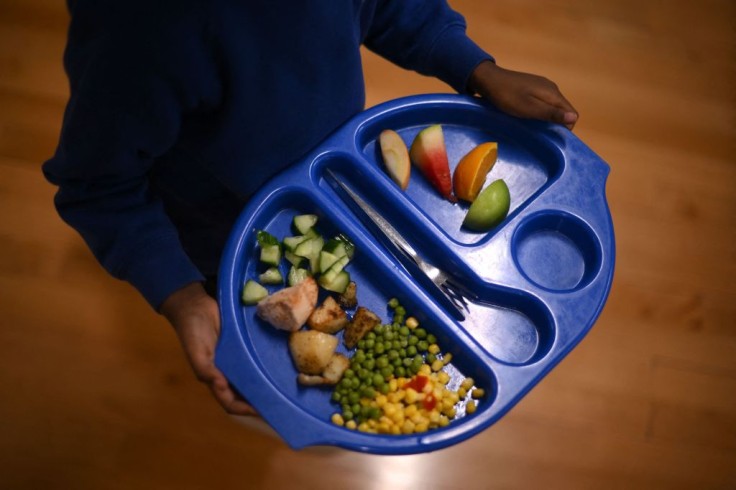
In today's fast-paced world, where convenience often takes precedence over nutrition, it is crucial to adopt a mindful approach to the food we serve our children.
Japanese nutritionists, known for their focus on longevity and healthy eating habits, caution against certain American foods that are considered unhealthy.
By understanding these recommendations and making informed choices, parents can contribute to their children's overall well-being and instill lifelong healthy eating habits.
6 American Foods Japanese Nutritionists Discourage Serving To Children
According to CNBC, here are six American foods that nutritionist Michiko Tomioka recommends avoiding:
1. Hamburgers: A Detriment to Health
Fast-food hamburgers, despite their popularity, often leave individuals feeling bloated and fatigued. Moreover, these burgers contain high levels of salt, trans fats, and saturated fats, which can elevate LDL "bad" cholesterol levels in the blood.
With that, it suggested switching fast food hamburgers to tofu burgers. Surprisingly delicious and nutritious, tofu burgers offer a healthy alternative.
Pair them with crispy brown rice balls and top them with edamame for an economical and environmentally friendly choice.
2. Sugary Cereals: A Sweet Start to Unhealthy Consequences
When pressed for time, it may be tempting to reach for sugary breakfast cereals. However, excessive sugar intake can lead to issues such as high blood pressure, weight gain, increased inflammation, and a higher risk of developing diabetes.
According to CBS, after consuming cereal, the drop in blood sugar levels triggers cravings for sugary foods like juices, candy, and other sweets, causing fluctuations in blood sugar that can lead to increased hunger and difficulty concentrating throughout the day.
Instead, it is recommended to serve multigrain rice or natto, a traditional Japanese dish made from fermented soybeans, as a healthy breakfast alternative.
3. Hot Dogs: An Unhealthy Choice
Hot dogs, a popular American staple, are not only high in salt but also contain saturated fats that can increase the risk of certain cancers, including colorectal and breast cancer.
As a mindful nutritionist, it is important to discourage the consumption of processed meats due to their adverse health effects.
Aside from that, according to USA Today, any food with a large, round, and solid shape can pose a choking risk. The American Academy of Pediatrics advises keeping hot dogs out of reach for children under the age of 4 to ensure their safety.
4. Sodas: A Sweetened Peril
Regular consumption of sugary sodas, particularly in high quantities, increases the risk of developing type 2 diabetes. It is essential to be mindful of sodas containing artificial sweeteners, as they can hinder focus and even trigger migraines.
5. Candy: A Sweet Temptation to Moderation
While it is not necessary to eliminate all candies from a child's diet, it is crucial to exercise moderation. Excessive consumption of sugary, corn starch-laden sweets can have detrimental effects on heart health and cognitive function.
According to Henry Ford Health, excessive sugar intake during childhood can result in unhealthy cravings as children grow up.
Consuming too much sugar can contribute to obesity, increasing the risk of high blood pressure, elevated cholesterol levels, and type 2 diabetes. It is recommended to choose healthier alternatives for satisfying sweet cravings.
6. Cream Cheese: A Questionable Dairy Choice
While dairy products can be a valuable source of calcium and protein, certain cheese products may not offer optimal health benefits. Cream cheese, in particular, contains low protein content and high levels of cholesterol.
It is recommended to instead opt for kinako as a spread. It is a flavorful spread made from soy flour and sesame paste. This alternative offers a delicious and nutritious option for those seeking a healthy substitute for cream cheese.
Mindful nutrition plays a pivotal role in promoting longevity and fostering healthy habits in children.
Japanese nutritionists discourage the consumption of certain American foods due to their adverse health effects.
By replacing these unhealthy choices with nutritious alternatives, such as tofu, multigrain rice, green teas, natto, kinako spread, and healthier sweets, parents can empower their children to make healthier choices and embark on a path to long-lasting well-being.
Embracing the wisdom of Japanese nutritionists and adopting mindful nutrition practices can pave the way for a healthier future generation.
Related Article
: Creating a Positive Food Environment: 7 Toxic Phrases To Avoid When Raising Healthy Eaters